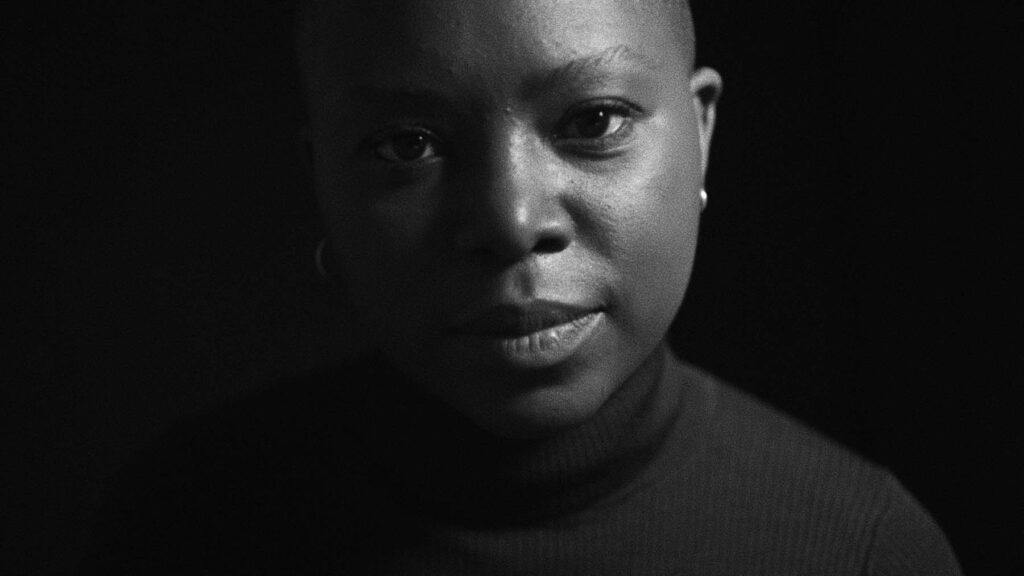
And if apartheid had never existed?
A woman undresses in front of the statue of Nelson Mandela. It is with these archival images that the director, screenwriter, and narrator, Milisuthando Bongela, draws our attention as an introduction to her historical and eponymous documentary film, which will last a total of 115 minutes. We are in South Africa, against a black background, a match lights up in the hands of a woman of color who ignites white candles. It promises light on existential questions intimately linked to race. In an upward shot by the director of photography and editor Hankyeol Lee, we discover a scene of purification with “impepho” incense.
Without even understanding Afrikaans or English, the images suggest that demons haunt this country while a swarm of birds circles in a vast blue sky. Milisuthando Bongela speaks to us about her parents’ South Africa and her South Africa today, decades after the end of apartheid. She grew up during segregation without ever realizing what was going on. Through her experiences today, she highlights how we cannot separate questions of race from questions of class and gender. Following her story, she constructs this film around five parts. First, ‘Birth.’ This initial part recounts the birth of her mother in Mthatha, which, in 1985, was the capital of Transkei, a contested republic that broke free from apartheid and was dissolved after 18 years of existence with its end.
Additionally, we joyfully learn about the moving songs that celebrated Transkei’s independence. We are almost taken aback in the second part titled ‘Enchantment,’ as we are rapidly taken through the depths of history in a long tunnel. And since enchantment often rhymes with ‘protection,’ that is how she names the third part, which starts with an outdoor scene at night, with a shot of tree leaves enduring an impending rainstorm.
The manifestation of this rain is seen as the arrival of a significant event and is assimilated with Nelson Mandela’s liberation; Milisuthando’s departure from Transkei to East London; the acceptance of black people in schools that were once exclusively reserved for whites. The fourth part, on the other hand, is purgative.
The actress cuts off her hair as if to reclaim her identity as a black woman belonging to South African society where she lives today. The title of the last part, ‘A Goat Calls Me Back Home,’ is a reflective look back. It is marked, among other things, by the funeral of Somikazi Victoria Mtikinca and ends with an audio background, signed by Néo Muyanga and Msaki, superimposed on the inaudible incantations of an actress kneeling, dressed in white amidst family photos, candles, offerings, and incense.
Could Milisuthando’s quest also be spiritual? Clearly, among Marion Isaacs’ production accolades, in 2023, the year of its release, the film already boasts nominations at the Sundance Film Festival, the San Francisco International Film Festival, and the Seattle International Film Festival. This affectionately brings us to call it the film with three nominations.
Durban International Film Festival
Catch the 44th edition of the Durban International Film Festival (DIFF), presented by the Centre for Creative Arts at the University of Kwazulu-Natal between 20 Jul 2023 – Sun, 30 Jul 2023
For more information visit: https://ccadiff.ukzn.ac.za
Author
This story emanates from the Talent Press, an initiative of Talents Durban in collaboration with the Durban FilmMart. The views of this article reflect the opinions of the film critic Gaël Hounkpatin.

